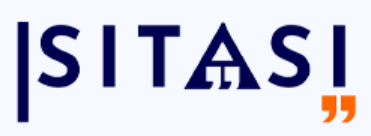DIGITAL MARKETING STRATEGIES TO IMPROVE MARKETING EFFECTIVENESS AND SALES PERFORMANCE OF MSMEs IN THE FOOD SECTOR
DOI:
https://doi.org/10.53067/ije3.v5i1.349Keywords:
Digital marketing, MSMEs, food sector, digital literacy, IndonesiaAbstract
This research aims to analyze how digital marketing strategies can improve marketing effectiveness and sales performance of MSMEs in the food sector in Indonesia. Using a qualitative approach, simulation data was collected through semi-structured interviews with 12 MSME actors in the food sector (traditional food traders, small cafes, and packaged food businesses) as well as observing their social media content. Thematic analysis revealed that social media, especially Instagram and TikTok, are effective in increasing brand visibility and customer engagement, with visual content and local influencer collaborations as key factors. However, low digital literacy and budget constraints are significant obstacles. Opportunities such as digital training programs from the government and increased internet access in rural areas support digital marketing adoption. This research integrates the AIDA Model and Theory of Planned Behavior to understand the adoption behavior of MSME actors, as well Diffusion of Innovation to analyze the spread of digital innovation. The research results offer a theoretical framework for academics and practical guidance for MSME actors and policy makers to strengthen the digitalization of MSMEs in the food sector. Policy implications include increasing digital literacy training and technology subsidies to support the competitiveness of MSMEs.
Downloads
References
Ajzen, I. (1991). The theory of planned behavior. Organizational Behavior and Human Decision Processes, 50(2), 179–211.
BPS. (2024). Statistik Telekomunikasi Indonesia 2023. Badan Pusat Statistik.
Braun, V., & Clarke, V. (2006). Using thematic analysis in psychology. Qualitative Research in Psychology, 3(2), 77–101.
Chaffey, D., & Ellis-Chadwick, F. (2019). Digital Marketing (7th ed.). Pearson.
Creswell, J. W., & Poth, C. N. (2018). Qualitative Inquiry and Research Design (4th ed.). Sage Publications.
Hartati, R., & Ananda, F. (2021). Literasi Digital dan Tantangan UMKM di Era Digitalisasi. Jurnal Ekonomi dan Bisnis Digital, 3(2), 45–55.
Kemenkop UKM. (2023). Laporan Tahunan Digitalisasi UMKM Indonesia.
Kotler, P., & Keller, K. L. (2016). Marketing Management (15th ed.). Pearson.
Lee, J., & Kim, S. (2022). Digital adoption in SMEs. Small Business Economics, 58(3), 1123–1139.
Nugroho, D. (2020). Storytelling dalam Pemasaran Digital Produk Makanan UMKM. Jurnal Komunikasi dan Bisnis, 7(1), 77–89.
Prasetyo, A., & Saputri, N. (2023). Pengaruh TikTok dan Influencer Marketing terhadap Minat Beli Konsumen pada Produk Makanan UMKM. Jurnal Pemasaran Digital Indonesia, 5(1), 25–38.
Pratama, A. (2024). Penerapan AIDA dalam pemasaran digital UMKM. Jurnal Bisnis Indonesia, 12(1), 45–56.
Rogers, E. M. (2003). Diffusion of Innovations (5th ed.). Free Press.
Sari, M., & Wibowo, A. (2022). Pemanfaatan E-Commerce oleh UMKM Sektor Makanan: Studi Kasus di Kota Bandung. Jurnal Inovasi Bisnis dan UMKM, 6(3), 134–146.
Smith, A., et al. (2022). Digital marketing adoption in SMEs. Journal of Small Business and Enterprise Development, 29(4), 567–589.
Suriyani, N. L., & Wahyuni, M. S. (2021). Media Sosial dan Peningkatan Daya Saing UMKM Kuliner di Bali. Jurnal Manajemen dan Kewirausahaan, 19(2), 101–115.
Strong, E. K. (1925). The Psychology of Selling and Advertising. McGraw-Hill.
Susanti, R., & Sari, P. (2023). Pengaruh Instagram terhadap penjualan UMKM makanan. Jurnal Manajemen dan Pemasaran Jasa, 16(2), 123–134.
Widodo, T., & Hartono, R. (2023). Literasi digital dan adopsi teknologi UMKM. Jurnal Riset Manajemen dan Bisnis, 8(2), 89–102.
Downloads
Published
How to Cite
Issue
Section
License
Copyright (c) 2025 Tabroni, Abdul Bahits, Suflani, Salapudin, Retno Wulansari

This work is licensed under a Creative Commons Attribution-NonCommercial-ShareAlike 4.0 International License.
Copyright @2021. This is an open-access article distributed under the terms of the Creative Commons Attribution-NonCommercial-ShareAlike 4.0 International License (http://creativecommons.org/licenses/by-nc-sa/4.0/) which permits unrestricted non-commercial used, distribution and reproduction in any medium
















